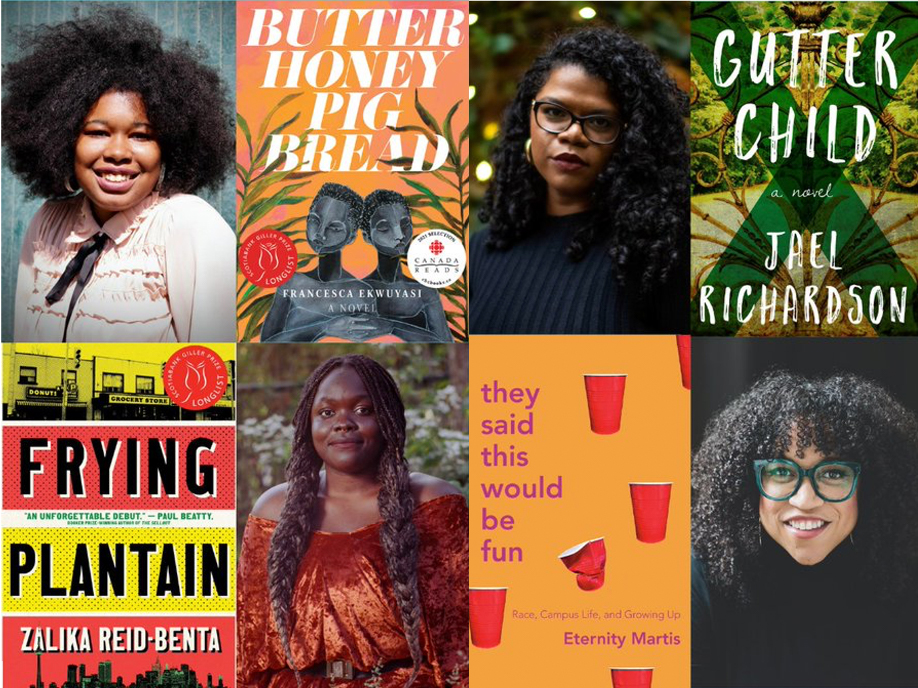On Feb. 19, the Canadian Women’s Foundation’s Tireless Readers Collective hosted “A Celebration of Black Women’s Voices in the Journey to Gender Equality,” a panel discussion featuring authors Zalika Reid-Benta, Eternity Martis, Francesca Ekwuyasi, and Jael Richardson. Chaired by the Foundation’s president and CEO, Paulette Senior, the panel reflected on writing as a path to justice, each author’s approaches to their stories, and their views on the future of Black literature and representation in Canada.
To open the discussion, Senior shared a quote from one of Canada’s founding mothers and political trailblazers, Rosemary Brown.
“Until all of us have made it, none of us have made it,” Senior read.
As the discussion moved to their genres, all four authors noted the stark contrasts between each other’s writing. Where Martis’ memoir, They Said This Would Be Fun, is journalistic, Richardson’s novel, Gutter Child is dystopian. Reid-Benta highlighted the importance of their range in genres and prose styles.
“There is a diversity of Black narratives […] that expands the scope of what it means to be Black,” Reid-Benta said.
Likewise, Richardson explained why the authors’ differences were valuable for both reaching and reflecting the lived experiences of a wide readership.
“It does not matter the form,” Richardson said. “Stories are a way of reaching other communities [….] By reading, people look at their lives differently.”
Martis and Ekwuyasi elaborated on Reid-Benta’s and Richardson’s points by referring to the potential of fiction and non-fiction stories to add truth to the public record of historical Black narratives.
The discussion extended past their writing and to the women’s relationships with their work. Martis, whose current journalistic practice with West End Phoenix focusses on revealing the hidden dynamics of systemic oppression, argued that solution-based journalism can help highlight the pandemic economy’s disproportionate effect on survivors of abuse, employed women, and maternal mortality.
“We need to speak of the intersections of what it means to be a woman of colour in a pandemic,” Martis said. “Narrative allows us to make choices [….] Solution-based journalism gives us the skills to act and to empower people of colour and women of colour.”
Similarly, the four noted that sharing Black narratives as a Black author often involves digging into the past—either historically or personally. To explain the “origin story” in dystopian fiction, Richardson spoke candidly about her limited knowledge of Black issues because of the erasure of Black history from the Canadian education system.
“In Black History Month, we talk about [Abraham] Lincoln, [Martin Luther] King [Jr.], emancipation, and slavery […], but that is a narrow lens of history,” Richardson said. “We need to do a better job of showing who we are […] because our existence is not just based in slavery.”
The authors shared their thoughts on how to reframe Black histories and present-day narratives so as to more accurately depict a wide array of experiences.
“More Black people need to tell Black stories,” Ekwuyasi said. “In Nigeria, on the continent, in the Caribbean, Black people are telling Black stories [….] We’re not a monolith.”
On multivocality, Reid-Benta went on to explain the difficulties she encountered trying to transcribe Patois and accurately portray Toronto’s Little Jamaica neighbourhood when writing Frying Plantain.
“I didn’t want to be seen as being the voice of the neighbourhood […], blanketing Black experience together,” Reid-Benta said. “I wrote what I felt was right.”
As the discussion came to a close, the authors spoke about the reception of their art. More recently, Ekwuyasi’s novel Butter Honey Pig Bread was shortlisted for CBC’s Canada Reads and Reid-Benta was selected to head the 2021 Giller Prize Jury. Martis is working on a project about Black and racialized jurors, and Richardon is currently writing a sequel to Gutter Child.
The four authors left the panel with a bold message for the future of gender equality—to write, to take on that active voice in reshaping and reinforcing what one sees and believes, and to continue supporting Black and intersectional voices beyond Black History Month.








